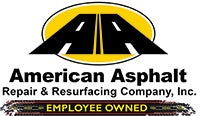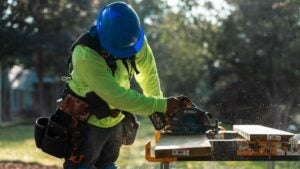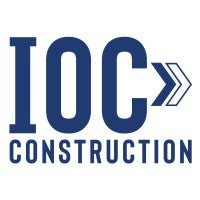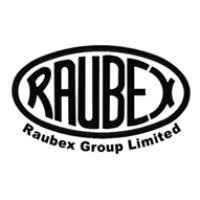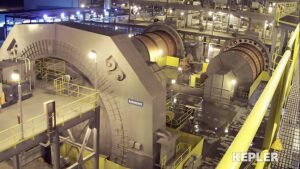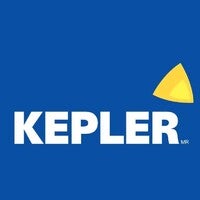American Asphalt operates border to border in California pouring concrete and asphalt for Residential Communities, Commercial Properties, Shopping Centers, and Public Works. The company uses state-of-the-art equipment and incorporates the latest in asphalt pavement, Caltrans slurry surfacing, sealcoating, striping and concrete technology.
Headquartered in Hayward, CA, American Asphalt employs 250 and generates nearly $100 million in annual revenue. Rather than working on a few large projects that take six months or more, American Asphalt completes about 1,400 jobs a year, with most taking 10 days or less to complete.
The construction firm is self-performing and has a high percentage of repeat customers including HOAs, commercial business parks, stadiums and large commercial companies and cities. It has two operating units, one covering Northern California and the other, Southern California.
“We are well-known for our quality and speed,” says Shel Waggener, President. “We do more work at a higher quality, faster pace than our competitors. Our strategic advantage isn’t doing accounting better but being able to support our field teams in delivering to our customers better.”
Legacy Construction Software for 20 years
For more than 20 years, the company used American Contractor, a legacy construction ERP package that later was subsequently acquired multiple times, merged with other software, and was built on older technology.
“It was a client-server package built on FoxPro that wasn’t able to easily integrate to any other solution. We couldn’t easily get anything out of it, and the reporting wasn’t flexible,” says Waggener. “As we grew, it became more and more challenging to live in one software package.”
American Asphalt stored critical information in paper-based project folders, operating like many other construction firms. This solution was less than ideal when 10 people working at many different locations all wanted to view the paper job file. In addition, project managers at construction sites did not have instant access to vital information.
Instead, they called the office, and asked someone to locate a file and verbally relay the necessary project data. Without immediate access to real-time financial details while on the job site, making decisions took much longer, a detriment in an industry where time is money and construction projects are short.
Needing a much more modern business solution, American Asphalt executives wanted to implement cloud-based software. They began a digital transformation journey with Salesforce’s CRM, and then added resource planning software Assignar. They chose a payroll application they later learned couldn’t handle certified payroll in California.
Executives wanted a robust centralized financial system built for the future, one that could grow with them as American Asphalt evolved. They wanted an open system – not a walled garden – that could easily connect to Salesforce, Assignar, and additional applications that could make them more efficient.
Limited Feature Set, Siloed Applications Eliminated
American Asphalt executives evaluated CMAC, Viewpoint and other legacy applications like Sage, which they eliminated from contention because each offered single modules with limited feature sets that did not allow for ease of integration with other applications, Waggener says.
They wanted something that was easy-to-use and could handle blueprints, photos, video and other unstructured data typical to the construction industry, which would make processes more efficient. The new system also needed to have the flexibility to easily add new lines of business and accommodate future acquisitions.
“What if we added another trade, or another jurisdiction or another tax ID? We wanted to be in a position to take advantage of future innovations without having to overhaul and be in a different environment,” Waggener says.
 Canada (English)
Canada (English)
 Colombia
Colombia
 Caribbean and Puerto Rico
Caribbean and Puerto Rico
 Ecuador
Ecuador
 India
India
 Indonesia
Indonesia
 Ireland
Ireland
 Malaysia
Malaysia
 Mexico
Mexico
 Panama
Panama
 Peru
Peru
 Philippines
Philippines
 Singapore
Singapore
 South Africa
South Africa
 Sri Lanka
Sri Lanka
 Thailand
Thailand
 United Kingdom
United Kingdom
 United States
United States
